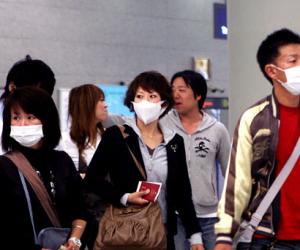Chinese authorities say the country is facing grave challenges to curb the spread of the A/H1-N1 virus in the autumn and winter flu season. But the breakthrough in vaccine research is boosting the nation's confidence to keep the situation under control.

Health Minister Chen Zhu says so far, all provinces, autonomous regions and municipalities have reported confirmed A/H1-N1 cases. The total cases in the Chinese mainland have reached nearly 5,560.
From Friday to Monday alone, the mainland reported nearly 12-hundred new cases. Shanghai and Zhejiang reported two critically-ill patients, now in stable condition.
The start of the new semester means the spread of the disease in schools is especially concerning. Many universities in Guangdong and Zhejiang have postponed the compulsory military drills for freshmen or at least reduced the intensity, and tightened preventive measures.
China's leading expert on prevention says what's needed are strict quarantine and isolation measures. Zhong Nanshan stresses the key is to cut off the spread in communities.
The health minister says Monday's State Council meeting laid out the principles for the next stage of prevention work. The key points are stronger preventive measures, tight control of the spread of the disease in communities, improving treatment of critically-ill patients and minimizing the impact of the disease. He also announced a breakthrough.
Chen Zhu , said, "After finishing clinical trials and proving the safety and effectiveness of the A/H1-N1 vaccine, China will become the first nation to use the vaccine. On Monday, the State Food and Drug Administration ratified the first batch of A/H1-N1 flu vaccine that can be safely used. "
The minister also says for a country with a population of 1.3 billion people, the current vaccine production ability is limited. The State Council is organizing qualified producers to meet public demand.
(CCTV September 9, 2009)